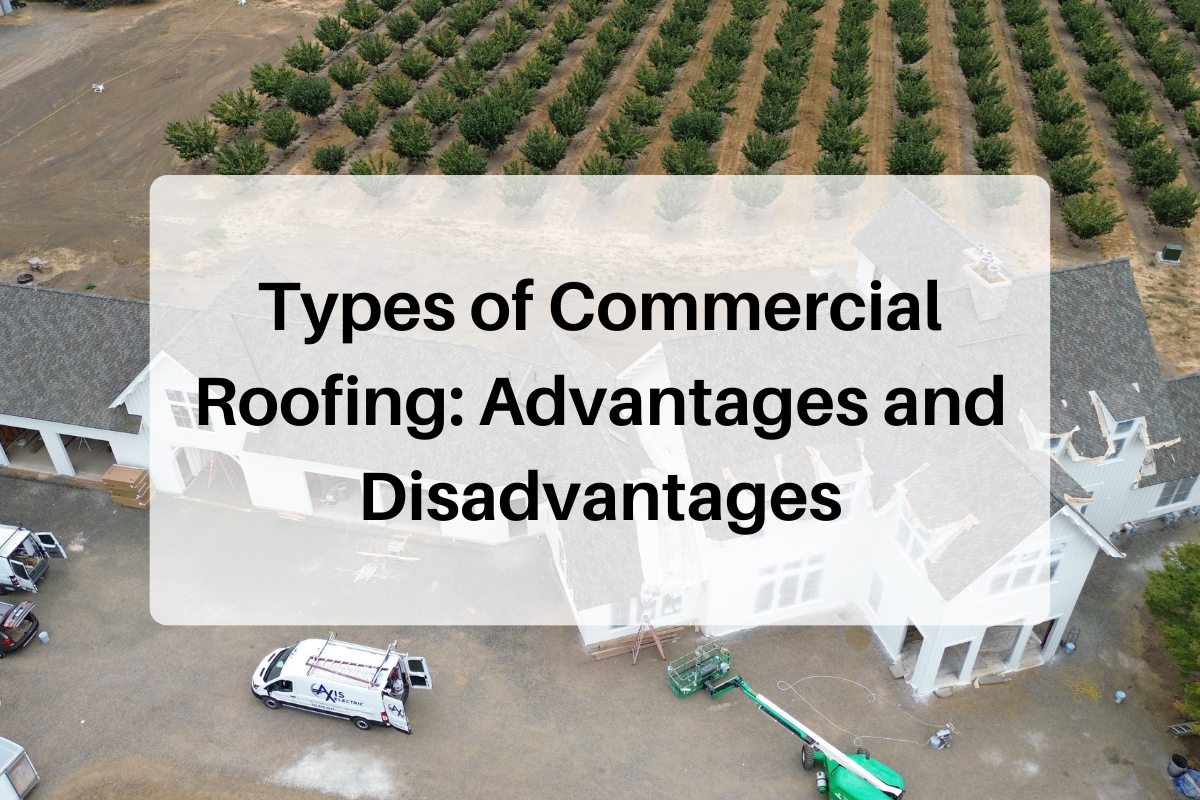Mastering Your New Construction Roof: A Comprehensive Guide to Metal Roofing
As your new construction project unfolds, the selection of roofing material becomes a pivotal decision. In this guide, we delve into the unparalleled advantages of metal roofing and provide insights into choosing reputable contractors.

Explore the durability, energy efficiency, and aesthetic appeal that make metal roofs a wise investment for your construction project.
Assessing Your Needs
A. Climate Considerations Tailoring materials to withstand local weather conditions is crucial for the longevity and efficiency of your roof. Whether it's resilient options for extreme temperatures or rain-resistant solutions, understanding your climate ensures a shield against the elements.
B. Understanding Local Building Codes Compliance with local building codes is foundational for a secure roofing plan. Dive into requirements governing roofing materials, slope, and fire resistance to contribute to a resilient and regulation-compliant construction.
Selecting Roofing Materials
A. Overview of Common Roofing Materials Explore a variety of roofing materials to craft a well-informed plan. From the affordability of asphalt shingles to the durability of metal, the timeless elegance of clay and concrete tiles, and the natural charm of wood shakes, each material presents unique advantages.
B. Factors Influencing Material Choice Consider budget, aesthetic preferences, and desired lifespan when choosing roofing materials. Understanding these factors empowers homeowners and builders to make informed decisions that align with both practical and visual objectives.
Designing Your Roof
A. Determining Roof Slope and Style The roof slope influences water runoff, while architectural styles impact aesthetics. Striking a balance between functionality and design defines the character of your structure and ensures optimal performance and visual appeal.
B. Ventilation Considerations Proper ventilation is pivotal for an efficient roofing plan. It prevents issues like condensation and moisture buildup, safeguarding the integrity of your structure. Adequate airflow regulates temperature, enhances energy efficiency, and prolongs the lifespan of roofing materials.
Budget Planning
Budget planning is crucial for a successful roofing plan. Estimating costs for materials, factoring in additional features, and accounting for unexpected expenses ensures a realistic financial framework.
Hiring a Qualified Contractor
A. Importance of Hiring a Licensed and Insured Contractor Hiring a licensed and insured contractor guarantees professionalism, adherence to safety standards, and legal compliance. Insurance safeguards against unforeseen liabilities, ensuring peace of mind.
B. Researching and Checking References Thoroughly researching and checking references are indispensable steps in hiring a roofing contractor. Investigate reputation, past projects, and client testimonials to ensure a trustworthy partnership for your roofing plan.
C. Evaluating Previous Work and Craftsmanship Evaluate a contractor's previous work to examine quality, attention to detail, and overall client satisfaction. This scrutiny ensures that the chosen contractor possesses the skill and expertise necessary for your roofing project.
Installation Timeline
A. Developing a Realistic Timeline Consider weather conditions, potential delays, and the scope of work when developing a timeline. Effective communication with your contractor is key to ensuring a well-structured timeline for a successful and timely roofing installation.
B. Considering Weather Conditions and Potential Delays Recognize the impact of weather conditions on construction timelines to allow for proactive scheduling and mitigation strategies. This foresight ensures resilience against unforeseen challenges.
Energy Efficiency
Embracing energy efficiency is paramount. Explore options such as reflective materials and cool roofs to reduce heat absorption and lower energy consumption, contributing to environmental sustainability and potential long-term cost savings.
Maintenance Plan
A comprehensive maintenance plan is the backbone of a durable roofing strategy. Develop a routine schedule for inspections, addressing issues promptly to prevent escalation.
Warranty and Guarantees
Understanding the warranty and guarantees associated with roofing materials and contractors is essential. Thoroughly review coverage, duration, and conditions to secure your investment and ensure a resilient and reliable roof for your new construction.
FAQ
What are the key advantages of opting for new construction?
New construction offers modern amenities, the latest building technologies, and adherence to current safety standards. Homebuyers and businesses benefit from customization options and often experience lower maintenance costs.
What considerations should individuals weigh when investing in new construction?
Potential investors should evaluate factors such as location, builder reputation, and long-term value. Assessing construction quality, energy efficiency, and understanding warranty coverage are crucial aspects for informed decision-making in new construction.
In conclusion, mastering your new construction roof involves meticulous consideration of functionality, aesthetics, and durability. Prioritize climate considerations, adhere to local building codes, and select materials wisely to ensure the enduring strength and appeal of your entire structure.











Share On: